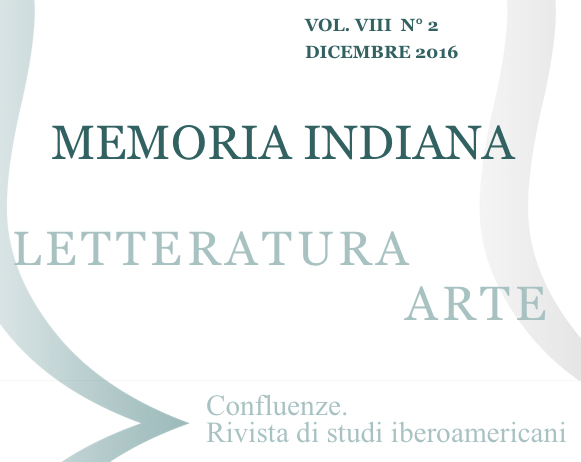Memoria antica e memoria indiana: discorso sulle divinità indigene nell’opera di Fray Juan Torquemada
DOI:
https://doi.org/10.6092/issn.2036-0967/6648Palabras clave:
Torquemada, polytheism, Franciscans, comparison, idolatryResumen
The Monarquía indiana - published in Seville in 1615 by Fray Juan de Torquemada - represented one of the most significant efforts to include Indigenous religions within a global view of religious diversity. As a product of a modern process of “mondialization”, the work of Torquemada reflected on the nature of Mesoamerican gods from a ground-breaking point of view. The Franciscan produced an evolution of the missionary methods and strategies used during the first part of colonial history. In the context of modern discourses on religion, the work of Torquemada does not represent only an "ethnographic" attempt to understand the complexity of Indigenous religions in order to promote evangelization. On the contrary, the missionary reflection on Indigenous gods established a key stage in the modern construction of a global theory of polytheism.Descargas
Publicado
2016-12-31
Cómo citar
Botta, S. (2016). Memoria antica e memoria indiana: discorso sulle divinità indigene nell’opera di Fray Juan Torquemada. Confluenze. Rivista Di Studi Iberoamericani, 8(2), 101–119. https://doi.org/10.6092/issn.2036-0967/6648
Número
Sección
DOSSIER
Licencia
Derechos de autor 2016 Sergio Botta
Los derechos de autor y publicación de todos los textos de esta revista pertenecen a sus respectivos autores sin restricciones.
Esta obra está bajo una licencia de Creative Commons Reconocimiento 4.0 Internacional (código legal completo).
Véase también nuestra Open Access Policy.
Metadatos
Todos los metadatos del material publicado son de dominio público y pueden ser utilizados por cualquier persona de forma gratuita. Esto incluye las referencias.
Los metadatos -incluidas las referencias- pueden reutilizarse en cualquier medio sin autorización previa, tanto con fines lucrativos como no lucrativos. Rogamos a los usuarios que faciliten un enlace al registro de metadatos original.






